Twin Seminars (Double Degree Programme UniCatania-UniLiege) 2014-2015
.jpg) |
.jpg) |
ReSHAPE Twin Seminars 2015
University of Catania (UC) and Universitè de Liege (ULg)
EU and Global Politics
Concept. The objective of the 2015 Twin Seminars is to guide the Master students of GLOPEM (UC) and the Master in Political Science/focus on European Politics and Euro-Mediterranean Relations (ULg) to study and discuss crucial issues about the EU global actorness.
Participants: Students of the UniCt Master “Global Politics and Euro-Mediterranean Relations” and of the UniLiege Master “Political Sciences focus in European Politics and Euro-Mediterranean Relations”
Seminar One - 9-11 March 2015Participants: Students of the UniCt Master “Global Politics and Euro-Mediterranean Relations” and of the UniLiege Master “Political Sciences focus in European Politics and Euro-Mediterranean Relations”
| Seminar One Increasing of Regionalism: will it change EU decision-making process? Department of Law and Political Science, University of Liege 9-11 March 2015 |
Seminar Two Who leads Europe.Institutions, Leadership, and Power in the EU Department of Political and Social Sciences, University of Catania 4-5 May 2015 |
Student evaluation |
Department of Law and Political Science, University of Liege
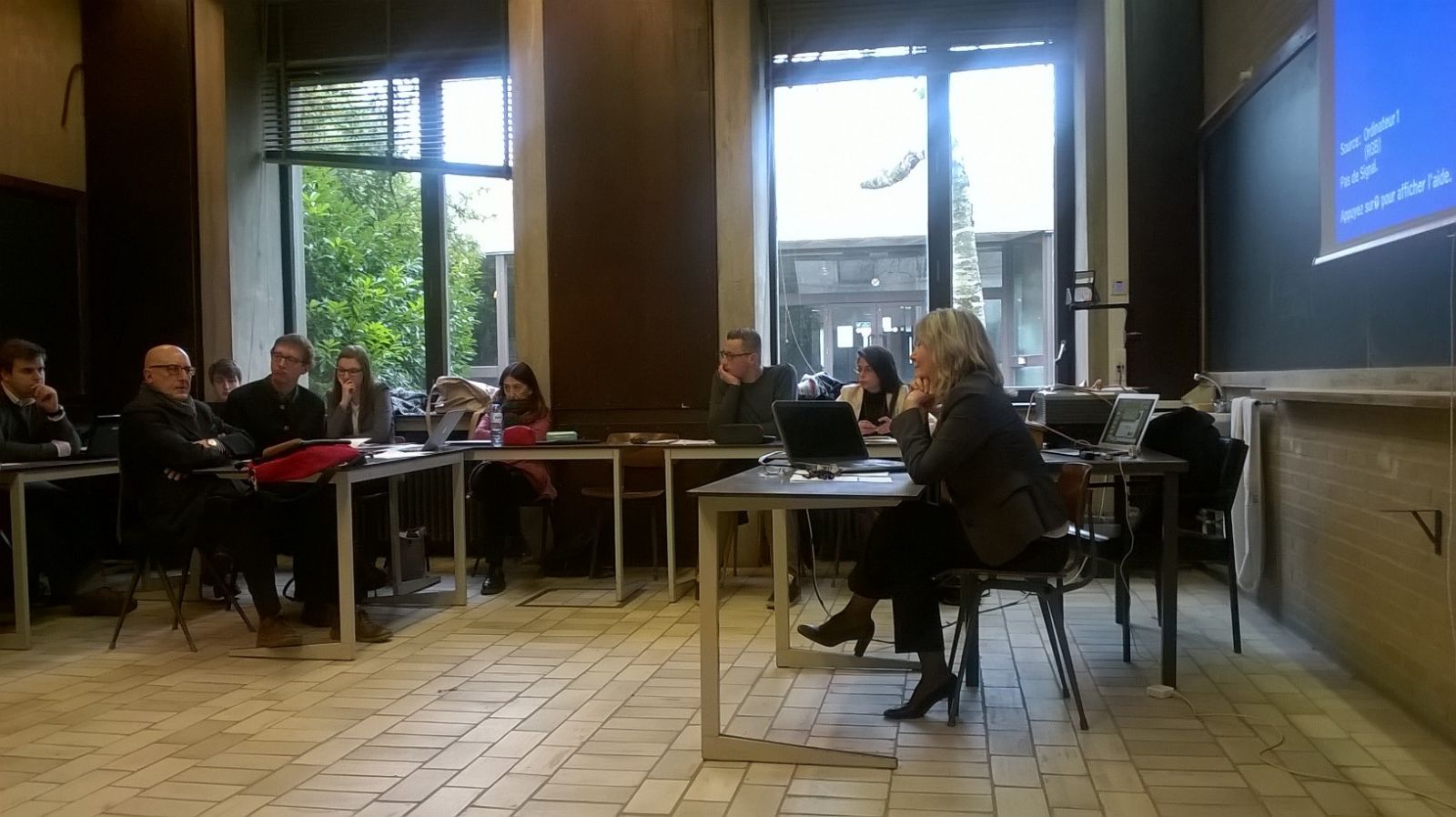
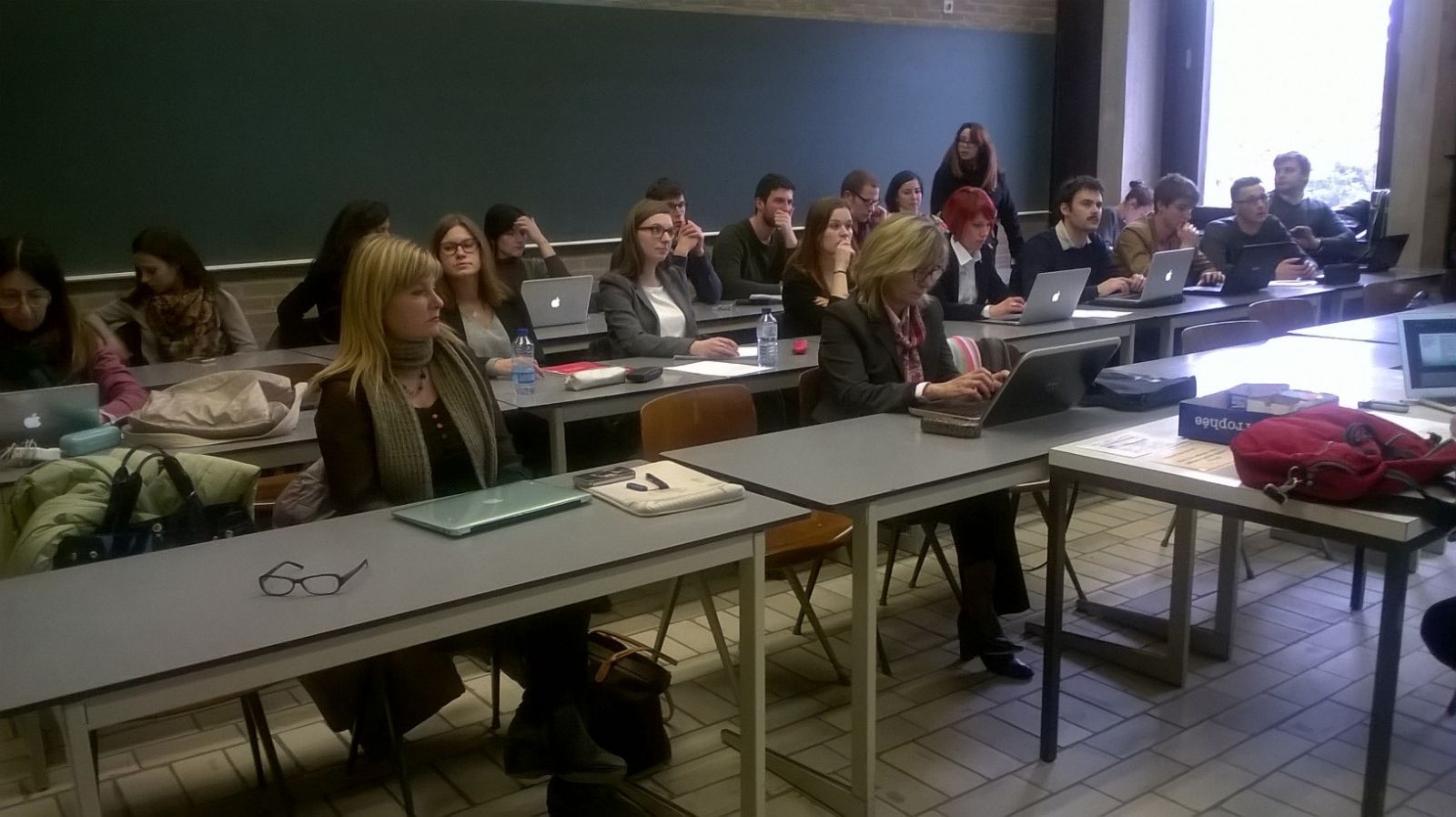
Seminar Topics: Increasing of regionalism : will it change EU decision-making process ?
Seminar Chair: Prof. Quentin MICHEL
14.45 Reactions from the room
15.00 Intervention by Prof. Longo, Professor of European Union Public Policy, University of Catania, European Regions and multilevel governance in the European Union
15.45 Reactions from the room
16.00 Coffee break
16.15 Intervention by Prof. Irrera, Professor of Political Science and International Relations, University of Catania, Regions and the domino-effect outside and inside the EU
17.00 Reactions from the room
17.15 End of the session
Tuesday, 10th of March
09.20 Questions from the room
09.30 Group 2 Giuseppe Danilo Toro, Veronica Vella, Matteo Nardini and Noemi Vanbelinghen
09.50 Questions from the room
10.00 Coffee break
10.15 Debate on topic 1
Topic 2 : Regionalism : the consequence of the nation-State’s crisis ? Re-defining borders, re-shaping or re-descovering identity ?
11.30 Group 3 Lelenia Lucchese, Anita Consoli, Olga Chudovska, Jean-Baptiste Lardot, Mathieu Neerinck
11.50 Questions from the room
12.00 Group 4 Giuseppina Squillaci, Denis Pepic, Colin Glesner, Nicoletta Sacco and Léa Parmentier
12.20 Questions from the room
12.30 Lunch
14.00 Debate on topic 2
15.30 End of the session
Wednesday, 11th March
10.00 Visit to the European Parliament (Bruxelles) 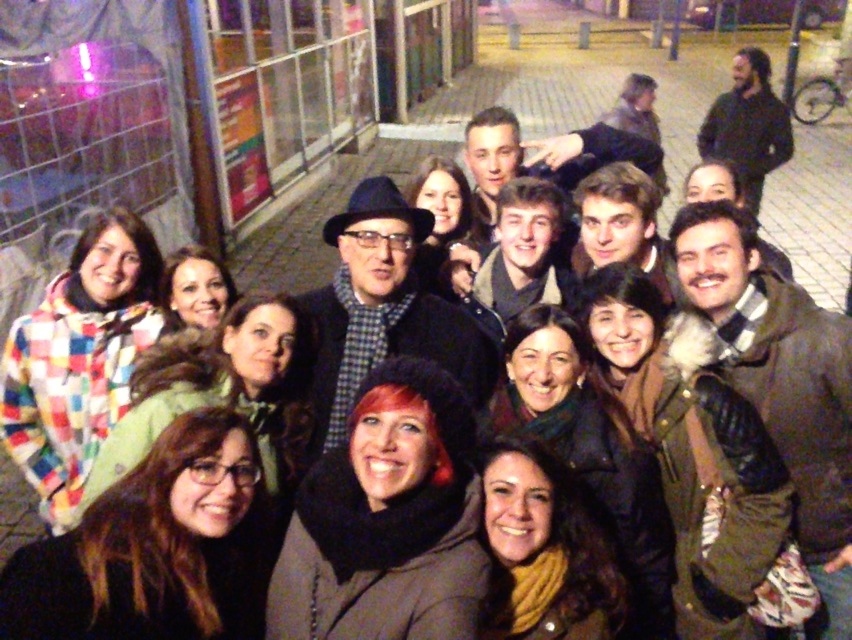
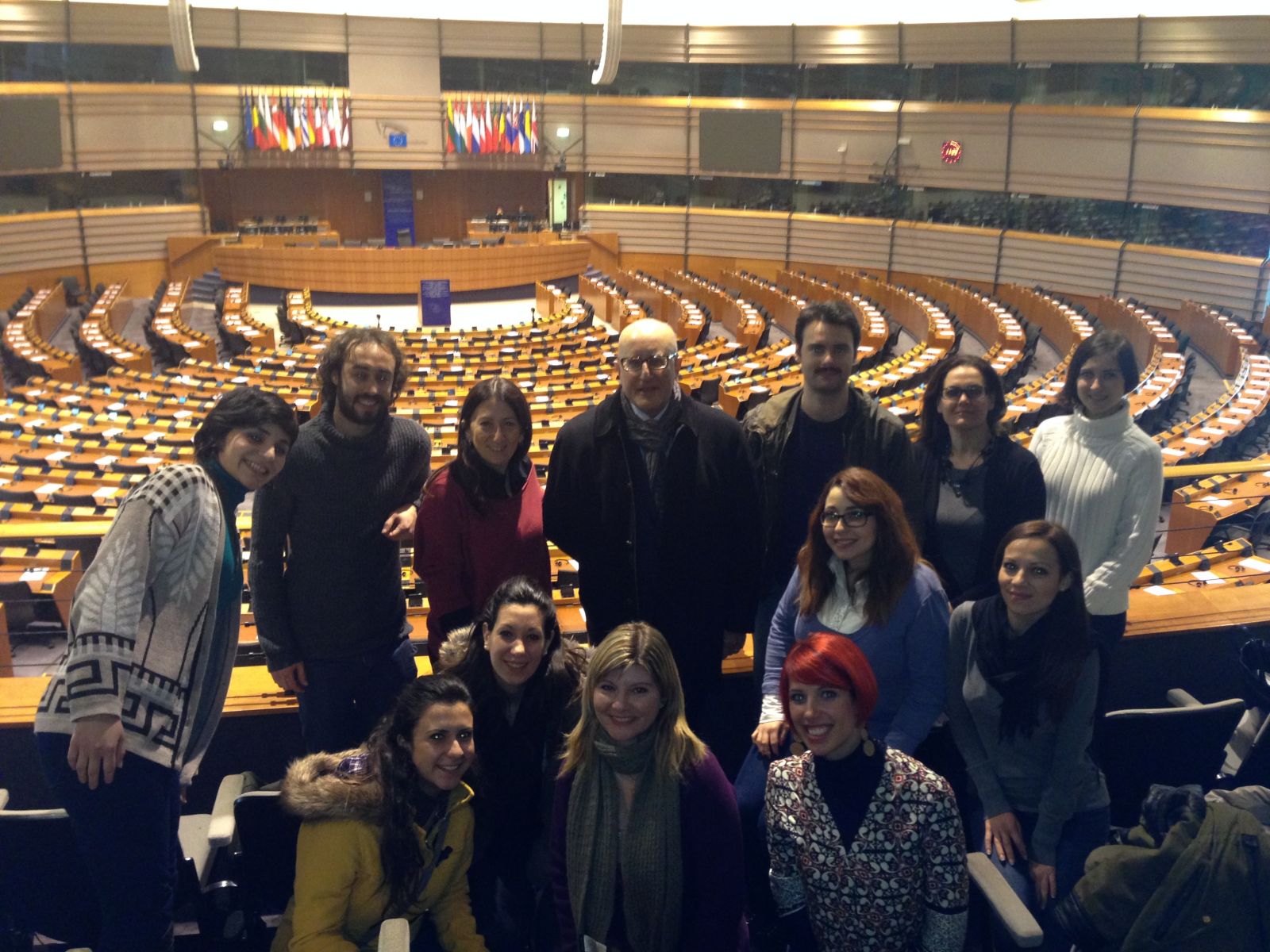
Seminar Chair: Prof. Quentin MICHEL
Seminar Agenda
Monday, 9th of March
Morning session
9.00 Welcome address by Pr. Quentin Michel, Professor of European Studies, University of Liège and Pr. Fulvio Attinà, Professor of International Relations and European Union Politics, University of Catania
An institutional perspective of regionalism
9.15 Intervention by Prof. Maria Stoicheva, Professor of European Studies at the Sofia University 'Siant Kliment Ohridski', Perceptions of Europe and the impact of/on Regional policies
10.00 Reactions from the room
10.15 Intervention by Jeremy Dodeigne, Phd candidate at the University of Liège, Processes of regionalization in Europe: institutional and sociopolitical perspectives
11.00 Reactions from the room
11.15 Coffee break
11.30 Intervention by Prof. Quentin Michel, Professor of European Studies, University of Liège, Regionalism and EU Treaties : recognition or ignorance ?
12.15 Reactions from the room
12.30 Lunch at the ULg campus restaurant Jacques et Laurent
Afternoon session
14.00 Intervention by Prof. Fulvio Attinà, Professor of International Relations and European Union Politics, University of Catania, Regionalism and Populism in the EU 9.00 Welcome address by Pr. Quentin Michel, Professor of European Studies, University of Liège and Pr. Fulvio Attinà, Professor of International Relations and European Union Politics, University of Catania
An institutional perspective of regionalism
9.15 Intervention by Prof. Maria Stoicheva, Professor of European Studies at the Sofia University 'Siant Kliment Ohridski', Perceptions of Europe and the impact of/on Regional policies
10.00 Reactions from the room
10.15 Intervention by Jeremy Dodeigne, Phd candidate at the University of Liège, Processes of regionalization in Europe: institutional and sociopolitical perspectives
11.00 Reactions from the room
11.15 Coffee break
11.30 Intervention by Prof. Quentin Michel, Professor of European Studies, University of Liège, Regionalism and EU Treaties : recognition or ignorance ?
12.15 Reactions from the room
12.30 Lunch at the ULg campus restaurant Jacques et Laurent
Afternoon session
14.45 Reactions from the room
15.00 Intervention by Prof. Longo, Professor of European Union Public Policy, University of Catania, European Regions and multilevel governance in the European Union
15.45 Reactions from the room
16.00 Coffee break
16.15 Intervention by Prof. Irrera, Professor of Political Science and International Relations, University of Catania, Regions and the domino-effect outside and inside the EU
17.00 Reactions from the room
17.15 End of the session
Morning session
Students’ understanding of regionalism
Topic 1 : Regionalism vs EU : is the principle of subsidiarity a cooperative instrument or a competition instrument ?
09.00 Group 1 Antoine Delens, Lucas Foester, Justine Kubera and Esther BleysStudents’ understanding of regionalism
Topic 1 : Regionalism vs EU : is the principle of subsidiarity a cooperative instrument or a competition instrument ?
09.20 Questions from the room
09.30 Group 2 Giuseppe Danilo Toro, Veronica Vella, Matteo Nardini and Noemi Vanbelinghen
09.50 Questions from the room
10.00 Coffee break
10.15 Debate on topic 1
Topic 2 : Regionalism : the consequence of the nation-State’s crisis ? Re-defining borders, re-shaping or re-descovering identity ?
11.30 Group 3 Lelenia Lucchese, Anita Consoli, Olga Chudovska, Jean-Baptiste Lardot, Mathieu Neerinck
11.50 Questions from the room
12.00 Group 4 Giuseppina Squillaci, Denis Pepic, Colin Glesner, Nicoletta Sacco and Léa Parmentier
12.20 Questions from the room
12.30 Lunch
14.00 Debate on topic 2
15.30 End of the session
Wednesday, 11th March
10.00 Visit to the European Parliament (Bruxelles)


Seminar Two – 4-5 May 2015
Department of Political and Social Sciences, University of Catania
WHO LEADS EUROPE?
INSTITUTIONS, LEADERSHIP AND POWER IN THE EU
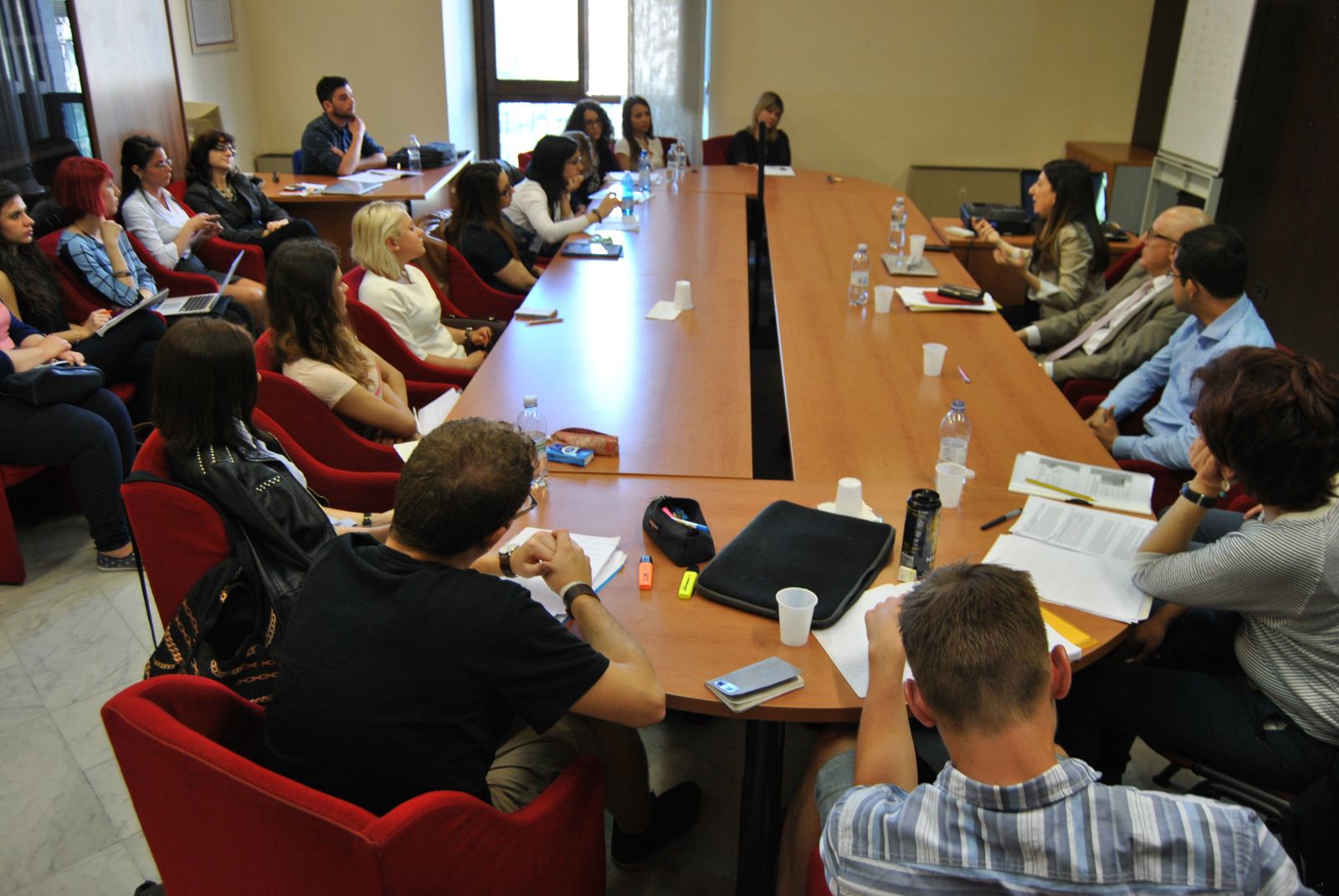
Seminar Chair Prof. Francesca Longo
Seminar Agenda
Monday, 4 May
Morning session
9.30 Welcome address by Prof Fulvio Attinà, University of Catania, and Prof Quentin Michel, University of Liège.
9.45 Prof Francesca Longo, University of Catania, To be or not to be? The EU parliamentarisation dilemma9.30 Welcome address by Prof Fulvio Attinà, University of Catania, and Prof Quentin Michel, University of Liège.
Discussion
10.45 Dr Emanuele Urzì, Presidency of the Council of Ministers, Department of European Policies, Rome, The ascending phase of the EU legislative process: the perspective of a national official.
Discussion
11.45 Prof Rossana Sampugnaro, University of Catania, Leadership and political communication
Discussion
Lunch break
Afternoon session
15.00 Prof Quentin Michel, University of Liege, Who leads the TTIP negotiations, and where to?
Discussion
16.00 Lia Caponetti (PhD), University of Liege, Questionning the supremacy of financial governance: the Troika
Discussion
17.00 Prof. Daniela Irrera, University of Catania, Introduction to the TwinSim
Tuesday, 5 May
9.30-12,30
TwinSim
UNDERSTANDING AND PLAYING EU DYNAMICS
The appointment of the President of the EU Commission
UNDERSTANDING AND PLAYING EU DYNAMICS
The appointment of the President of the EU Commission
TwinSim is a negotiation model explicitly designed for students of European Politics Master courses. More specifically, the TwinSim is addressed to students enrolled in the MA "Global Politics and Euro-Mediterranean Relations" (GLOPEM) at UNICT and students enrolled in the MA in Political Sciences focus in European Politics and Euro-Mediterranean Relations" at the Université de Liège ( Antoine Luc Delens, Justine Kubera, Esther Bleys and Lucas Foester).
The TwinSim scenario is the European Union facing the immediate aftermath of the European elections and the urgent political decision of the appointment of the President of the Commission. Students experience the negotiation between the European Council and the European Parliament aimed at breaking through the strategies and preferences of political parties and Member State governments. The negotiation goal is achieving the appointment of a President with the largest and participated consensus.
The simulation players receive instructions via references, documents, and websites to prepare their strategy and position.
There are three types of players:
- the members of the European Council. They debate about the list of the candidate names, negotiate, and select one of the candidates as the designated President to pass the vote of the EP members. The position of the Council members is based on (a) the European election results and EP party group seats, (b) the preferences of the national governments and political parties, and (c) the political goals of the EP party groups.
- the four largest EP party groups. They debate about the Council designated President to reach to the EP final decision on the name of the candidate President.
- the designated candidate that will be voted by the EP members.
Lunch break
15.00-16.00 Simulation debriefing
16.00 Seminar Closing Session
Ultima modifica:
11/03/2021 - 13:00